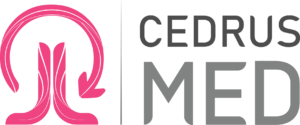CedrusMed’s Targeted Case Management (TCM) assessment is an essential tool designed to help clients gain access to the medical, clinical, social, and educational services they need to improve their quality of life. The TCM assessment provides a comprehensive evaluation of a client’s situation, identifying their strengths, challenges, and needs to develop an effective and personalized care plan.
Key Components of the CedrusMed TCM Assessment
- Client Information The assessment begins with collecting the client’s basic personal details, such as name, contact information, and social security number. This section also includes demographic information like race, ethnicity, marital status, and the client’s preferred language. Ensuring informed consent is vital, so details on consent to treatment are also recorded.
- Referral Information This section records the source of the referral to CedrusMed’s services. It includes information about the referring agency, any notes relevant to the referral, and whether the assessment data was provided by someone other than the client.
- Presenting Problems and History Here, the assessment details the primary issues the client is facing, along with a history of these problems. This includes the client’s perspective, as well as input from their legal representative or family, provided appropriate consent is obtained. This section is critical for understanding the context and urgency of the client’s needs.
- Psychiatric and Medical History The client’s psychiatric and medical background is thoroughly reviewed, including current and past medications, their efficacy, and any side effects experienced. The assessment also identifies any barriers the client may face in adhering to prescribed treatments, offering a comprehensive view of their health management needs.
- Client Strengths and Support Systems Recognizing the client’s strengths is crucial for building an effective care plan. This section identifies the client’s talents, interests, and community connections. It also documents any unpaid support that the client receives from family, friends, or other community members, which plays a vital role in their overall well-being.
- Assessment of Needs and Functioning The assessment evaluates the client’s ability to perform daily activities, known as Activities of Daily Living (ADLs) and Instrumental Activities of Daily Living (IADLs). This includes tasks such as bathing, cooking, and managing medications. Additionally, it assesses the client’s living conditions, identifying potential risks and transportation needs to ensure they are safe and supported in their environment.
- Legal and Financial Status The assessment also considers the client’s legal and financial circumstances. It documents any ongoing legal cases, probation or parole status, and other legal needs, as well as the client’s financial situation, including income, expenses, and any financial challenges they may face. This information is crucial for understanding the broader context of the client’s life and the resources they need.
- Health and Wellness This section covers various aspects of the client’s health, including their nutrition, dental care, vision, and hearing. It also reviews any allergies, medical conditions, or surgeries the client has undergone. These details are important for creating a care plan that addresses all aspects of the client’s physical health.
- Social and Recreational Activities Understanding the client’s social life and recreational interests is essential for promoting mental and emotional well-being. This section explores the client’s hobbies, interests, and social support networks, which are important components of a well-rounded care plan.
- Service Needs and Planning Finally, the assessment identifies the specific services the client needs, ranging from medical care to legal assistance. This section helps in creating a targeted care plan that addresses all areas where the client requires support, ensuring a coordinated and effective approach to their care.


